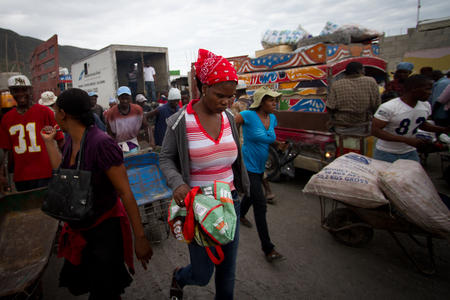When a 7.0-magnitude earthquake struck Port-au-Prince, in January 2010, the Dominican Republic, which shares the island of Hispaniola with Haiti, responded immediately by sending doctors, rescue teams, and over $34 million worth of emergency aid. Since then, the Dominican government has constructed a state-of-the-art university in northern Haiti and worked with Haiti’s new government to improve conditions across the border.
But neither the Dominican state nor the majority of its citizens have shown any such mercy to the estimated 500,000 to 1 million Haitians and Dominicans of Haitian descent living in their midst.
Access the article through NACLA subscription services
Read the accompanying sidebar story, Life in a Border Town Marred by Tension (no subscription necessary).
A NACLA investigation funded by the Samuel Chavkin Fund for Investigative Journalism finds the Dominican Republic to be openly discriminating against Haitian immigrants only two years after Haiti suffered a devastating 2010 earthquake.
1 Haitians living in the Dominican Republic continue to be persecuted by immigration and police authorities, ostracized by Dominican society, and indiscriminately denied political and human rights.
“The help that the Dominican Republic gave is used to negate all the prejudices, abuses, and discrimination that continues to occur,” says Jenny Morón, legal coordinator for the Movement of Dominican-Haitian Women, based in Santo Domingo. “They say, ‘Look how much we’ve helped Haiti.’ But why is it easier for Dominicans to help Haitians there than here?”
Click HERE to access the article through NACLA subscription services
Click HERE to read the accompanying sidebar story, Life in a Border Town Marred by Tension (no subscription necessary).
